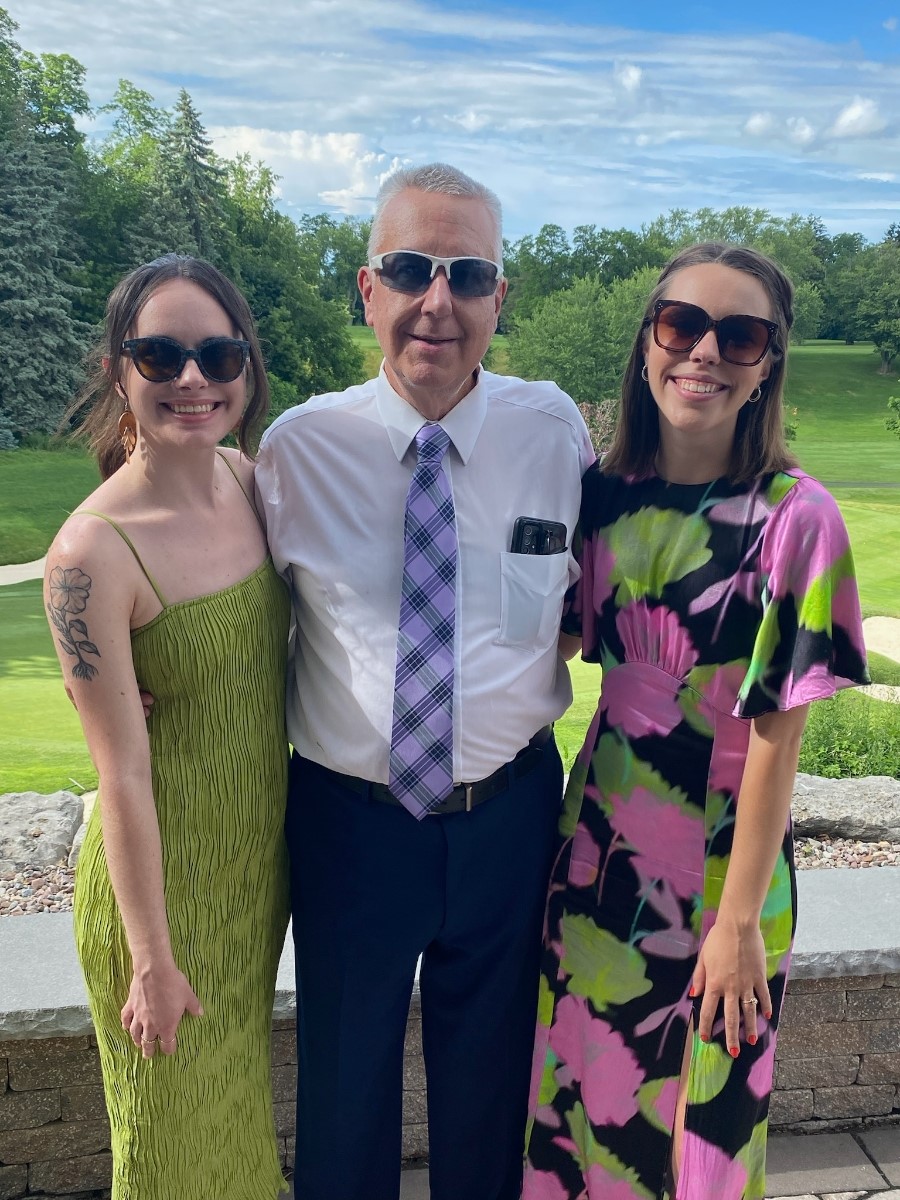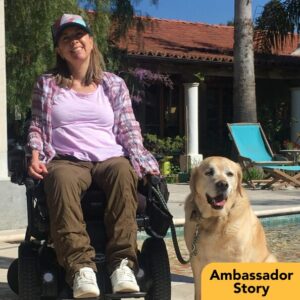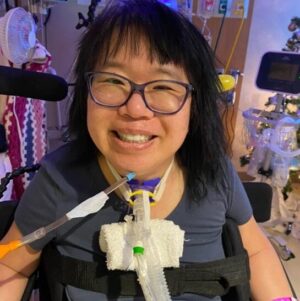Greg Wright began experiencing congestive heart failure in the 2010s. In February 2020, after three weeks of hospitalization, a heart became available to grant Greg the gift of new life.
Four years post-transplant, Greg is a proud Ambassador who continues to fundraise with Help Hope Live for ongoing out-of-pocket expenses.
In this interview, Greg explains the reality of transplant recovery—including the financial burden and the emotional weight—and shares his gratitude at the support community that helped bring new life within reach.

How did heart failure impact your day-to-day life pre-transplant?
I was taking daily medication treatments, and as time progressed, my ability to breathe worsened.
Just walking one block or going up a single flight of stairs became a challenge.
By 2020, I was hospitalized and waiting patiently for a heart transplant, attached to pumps and catheters. I was confined to bed for the three weeks prior to transplant.
Both my family and my medical team had been providing a constant source of strength and support as I lived with heart failure.

Tell us about the days and hours leading up to your heart transplant.
When I received word that a suitable heart donor had been located, it was lights, camera, action.
It was go-time, and I was ready.
My family seemed nervous, but both me and my medical team felt I was in good spirits and ready to proceed. Personally, I did not have self-pity or doubts during the waiting period. I stayed optimistic that the surgery would be a success.
The hardest part was waiting for an operating room to become available. We waited until the wee hours of February 27—the donor heart arrived, and the OR opened.
The pre-surgical medical team were nice folks who kept me clean, changed my dressings and beddings as required, and helped keep my spirits positive. There was one last wait: ensuring the donor heart would meet the necessary benchmarks to be a safe match.
It was a wonderful emotion when I got the thumbs-up signal that the heart was a match.
How was the initial transplant recovery?
I woke up six hours after the procedure, which only took three hours. I was woozy and could feel soreness where the incision went down my upper chest—but I could also tell that my breathing seemed normal and was no longer labored as it was in the months prior to transplant.
The chief surgeon had removed my implantable cardioverter-defibrillator (ICD), indicating there was no longer a constant risk of life-threatening heart irregularities.
Did the transplant cure all your medical challenges?
The transplant surgery gave me a life extension for which I am forever grateful. Today, I can do pretty much all the daily activities I used to be able to do before I developed congestive heart failure.
However, the truth is that post-transplant recovery is not a bed of roses.

Especially during the first year, recovery is an active and intensive process. Biopsies were performed to ensure my donor heart was working optimally. I began taking immunosuppressant medications twice daily every single day to help prevent transplant rejection. I spent the first sixth months on an additional anti-rejection medication.
The process of getting my medications right was not easy.
In fact, the first steroid I took came with nasty side effects—I had a short fuse, no patience, and even aggressive behavior. This was the complete opposite of how I was before taking the medication.
Thankfully, my wife and family knew and understood the root cause behind that period of holy terror, but it took a lot of patience on their part.

COVID presented another major challenge.
It was a constant effort to stay masked up and minimize visitations over the first few weeks of recovery. I feel lucky that my transplant took place before COVID hit the region hard and may have diverted our hope.
Within those first six months, I was back in the hospital to be treated for a severe lower gastrointestinal illness.
It took me time to get back my arm and leg strength and my stamina. I took daily walks, first with a walker or rollator and then with a cane—I was working toward literally getting back on my feet.
I felt liberated a month after surgery when I could finally walk the stairs of my own home again.
Four years later, I still have to receive medication adjustments from time to time, especially if I feel lightheaded or experience abnormal blood pressure readings. I feel thankful to my family and medical team for the splendid job they do monitoring my readings and helping to adjust dosages.
I also live with constant tremors in my fingers—a side effect of anti-rejection medication that I must keep taking to protect my heart.
You don’t refer to your heart as your “new” heart. Why is that?
In my view, the only new organs we have are the ones we are born with. It is up to us to maintain the transplanted organs we receive to get the most out of life that we can. I view that gift with honor—I am living with a donor heart, not a new heart.
Donors and their families are the true champions.
Through their sacrifice, the wonders of modern medicine, and Divine Providence, they have provided us with the gift of life to extend and prosper.

Emotionally, how has life changed—or remained the same—post-transplant?
Beyond the physical, the same challenges are still in front of me as they come up mentally, emotionally, and in my relationships. That’s not something a transplant can cure.
However, the surgery gave me a new lease on life and has humbled me as never before.
It underscored to me just how fragile humans are. Life is to be cherished, each day and every day, from the time I wake up until bedtime.
Life is never taken for granted.
I am grateful to the donor’s family for gifting me the heart that has enabled me to keep going. The support from my family and so many other folks has been so uplifting.

How did your community play a role in giving you the financial and emotional support you needed?
Fundraising with Help Hope Live has covered almost $6,000 in out-of-pocket transplant expenses.
Thanks to family, friends, colleagues, and well-wishers, the support I received through my Help Hope Live campaign was tremendous.
That financial lifeline remains strong to this day.
Television and newspaper coverage helped spread my story. In association with my alma mater, my community raised more than $2,000 in my honor during a home basketball game double-header just four weeks before my transplant.
Beyond the financial help, it was a huge psychological boost to know that the community cared.
Why did you choose Help Hope Live for transplant fundraising?
We knew the cost of a transplant would be high, and I did have coverage for most of my hospital and examination bills, but the remaining out-of-pocket burden was still no inexpensive proposition.
It became obvious early on that I would need financial assistance to cover incidental medical expenses, prescriptions, and transportation to and from my home to Philadelphia for biopsies and medical visits.
I found Help Hope Live through the recommendation of my pre-surgical team at PennMed. My team gave me a brochure that outlined Help Hope Live’s mission and function.
The one-on-one help I received with setting up and launching my fundraising campaign was invaluable.
Fundraising with one-on-one guidance gave me a 2-month head start to fundraise before my transplant occurred.
Allowing donors to give in a tax-deductible way was appealing to me—I knew it would make the decision to donate even simpler for supporters.
What made you decide to become an Ambassador for the organization?
Since I first learned about Help Hope Live’s mission, it has been important to me to spread the word about the resources available to assist patients—not just transplant candidates but also people facing other life-changing emergencies, like spinal cord injuries or catastrophic illnesses.
I became an Ambassador to share my story and be a listening partner for other transplant patients.
They are common folks like myself—great people, actually—who have had similar experiences with transplant and need similar financial support.

I have seen the efforts of fellow transplant recipients on this Ambassador team, and even Ambassadors still waiting on a transplant.
I am so impressed with the level of activity and commitment that they show.
What advice do you have for transplant patients just starting out with fundraising?
Take control and do what is necessary to make up the financial shortfall. That is where you can turn to Hep Hope Live for support.
Keep in mind that while Help Hope Live is there to give you the resources you need to help your campaign succeed, you are the one who is making the outreach to your community. There are caring people and organizations who are willing and able to contribute.
Engage in fundraising and do not be afraid to reach out.
What other insights can you offer to transplant candidates waiting on their gift of life?
First, get the best medical team support in place for you, and follow through with them before and especially after the procedure. Doing so will make post-surgical life so much more rewarding and satisfying. Be sure to have both medical AND emotional support teams in place.
Be present and punctual for all pre-op exams and associated tests. Attend all pre-op orientation meetings and communicate with your specialist and doctors in related areas (urology, psychiatry, etc.).
Meet with the hospital coordinator who can help you make certain you have the proper coverage in place for medical and surgical expenses. Contact Help Hope Live as soon as possible to set up your fundraising campaign.
And what about advice for fellow transplant recipients?
Best wishes on your post-op journey—I know firsthand that it is both a blessing and a challenge. Keep up with your check-ups. Notify your transplant team immediately or call 911 if you are having health issues, whether minor or major.
Maintain a healthy diet, exercise, take long walks, and follow our medication regimen faithfully and regularly.
Your loved ones and your medical teams care about you. You have value.
Let that idea fuel the effort and care you put into this recovery process.
If any Help Hope Live transplant patients want to chat with me about the transplant process and have questions and concerns, I will be glad to offer my expertise. My email address is [email protected].
What does the word “hope” mean to you four years post-transplant?
I see hope as a wishful term. I turn to faith: I look for the faith to accept whatever fate God has in store and ride the waves through peaks and valleys.
Faith is stronger to me than hope, because in my life, it has involved forming a close relationship with God through Jesus Christ.
Faith is the empowerment to work together to make it through life’s innumerable challenges.

Keep up with Greg or make a donation in his honor on his Campaign Page.
Written by Emily Progin










